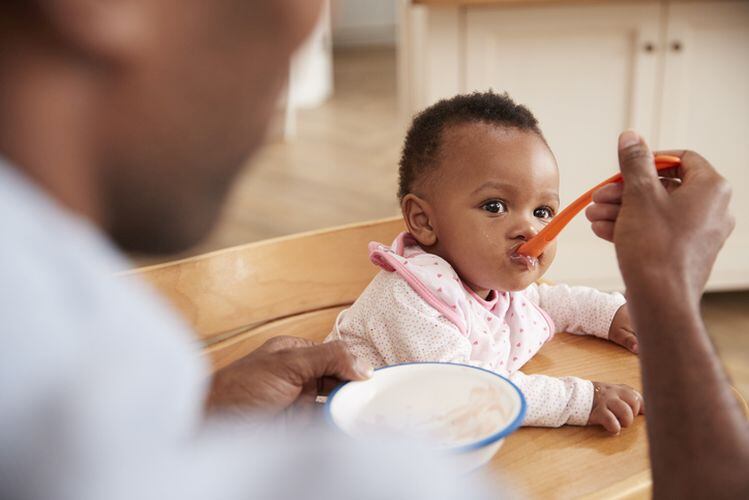The Baby Food Safety Act of 2021 sets maximum levels for inorganic arsenic (10 ppb, 15 ppb for cereal), lead (5 ppb, 10 ppb for cereal), cadmium (5 ppb, 10 ppb for cereal), and mercury (2 ppb) that are well below internal thresholds set by many manufacturers, and significantly lower than recent FDA guidance on infant rice cereals (100ppb inorganic arsenic).
While some stakeholders feel that lawmakers have jumped the gun with this bill, and that thresholds should be “set by the FDA and guided by science,” others say Congress "should not wait for the FDA to act.”
Congressman Raja Krishnamoorthi – who chairs the Subcommittee on Economic and Consumer Policy which released the recent baby food report – in turn has argued that firms should reformulate products if the targets in the bill are not achievable with existing recipes: “If it is not possible, or it is exceedingly costly, to source ingredients like rice that achieve a safe level, then baby food manufacturers should find substitutes for those ingredients.”
Thresholds are challenging… but they are a starting point
So where does this leave baby food companies?
Michael Pacyna - who was VP supply chain and procurement at Beyond Meat before joining Yumi as COO in 2019 – said: “It's clear that there hasn't been enough investigation to really determine what levels are appropriate and reachable for our products and what are appropriate for feeding to children whose brains are in the process of developing.”
The “thresholds in the Baby Food Safety Act are challenging, without a doubt,” he told FoodNavigator-USA. But right now, he said, “as we don't have federal guidelines, this [bill] will at least start the conversation and put a stake in the ground for where we should start.”
In the meantime, he added, “Our responsibility is to get as low as we can possibly get and we have set ourselves extremely aggressive markers to meet [although he did not say what internal thresholds Yumi has been using for testing purposes].”
‘From the start, we have avoided rice because it is too problematic’
In some cases, he said, it’s safest to simply avoid certain ingredients that are known to suck up heavy metals from the environment, while fortification can also be something to keep an eye on (Yumi’s website refers to “poorly vetted vitamin mixes”).

“From the start, we have avoided rice because it is too problematic,” said Pacyna. “Some dark leafy greens can also be problematic, but it's not impossible to find them from a good source.
“You also have to watch some things that grow right in the soil where there’s more of a possibility of having heavy metals leaching into their flesh, so things like root vegetables.”
Yumi also avoids soy on the grounds that “Soy based infant formulas have on average 7x more cadmium than other formulas,” while fruit juice is also avoided because “a study conducted in 2012 found that nearly 10% of 88 apple and grape juices sampled had worrisome levels of arsenic [editor's note: FDA guidance sets out action levels of 10ppb for inorganic arsenic in apple juice].”
He added: “We access federal soils reports, and we have a great network of growers who test our crops regularly every season and can stand behind those test results, although we also do testing ourselves, regardless of what [our suppliers’] tests say, and if we get a result that we don't think is good enough, we have the option of moving to other other growers or sourcing from other parts of the state or the country.”
From a formulation perspective, meanwhile, he said, Yumi has been thoughtful about ingredients that block the absorption of certain heavy metals, for example. (The Yumi website claims that “Broccoli, kale and beans are high in calcium and iron, two nutrients that block lead absorption.”)
“By endorsing the Baby Food Safety Act, Yumi acknowledges that dramatically reducing lead, arsenic, cadmium, and mercury from baby food is not only urgent, but utterly achievable.” Rep Raja Krishnamoorthi (D-IL)
'We got a flood of questions from parents'
So how have parents responded to the headlines?
“When this dropped in the media, we got a flood of questions,” said Pacyna, who said parents are confused both about how seriously to take the headlines, and what, if anything, they can do to keep their babies safe.
Some assume that buying organic baby food, or making their own will solve the problem, which is not necessarily true, he said. Food safety experts, for example, note that making your own baby food doesn’t mean you’re any less likely to encounter heavy metals since ‘processing’ per se isn’t the issue, while Yumi’s website also explains that, “Just because a product is organic, doesn't mean it's necessarily good for you or even free of heavy metals.”
Baby food lends itself well to direct to consumer online subscription model, although 'We don't rule out brick and mortar'
Yumi was founded by Angela Sutherland, a former investment banker who teamed up with business journalist Evelyn Rusli to launch a direct to consumer baby food business in 2017 after researching baby food options for her own baby and feeling distinctly underwhelmed.
And while shipping chilled foods direct to consumers is expensive, prepared baby food lends itself well to the online subscription model, as new parents are creatures of habit, said Pacyna, who said there is a huge opportunity for growth: “We believe that we're feeding 2% of American babies at this point, from the studies that we've done.”
He added: “We don't rule out brick and mortar, certainly. I worked at Beyond Meat so I think there's creative ways to get into retail with a product that's not traditional, but right now the direct and consumer really works for us.”
But the key for Los Angeles-based Yumi – aside from having a differentiated product and appealing brand – has been building a relationship with parents and following them on their journey, so that Yumi becomes a trusted resource, he said.
“We have a proven track record of speaking to families so that when an issue comes up like heavy metals, they're like okay, we’ll ask Yumi.”
'A really big launch coming...'
Pacyna would not share any figures, but said that on key metrics around average orders, customer acquisition costs and retention rates, investors “are pleased when they look at our numbers,” and the new product pipeline.
“We’ve just launched fruit leathers and had a great response, and we have a really big launch coming that is going to be monumental for us, very different from what any of our competitors are doing and maybe different from what you might expect from us.”

Yumi ships its fresh organic chilled baby food in modified atmosphere-packed BPA-free recyclable plastic containers on a weekly basis in insulated packaging designed to keep it cool for up to 48 hours in transit.
Its blends - such as black bean & sweet potato, and kale, pear & quinoa - include a wide range of fruits, legumes, greens, grains, root vegetables, spices, and healthy fats, and will stay fresh in the fridge for eight days (or two months in the freezer).
YUMI's average jar has a 3:1 sugar to fiber ratio, while the average squeeze pouch on the market has a 12:1 ratio, claims the company.
All of the products - which now include bites, puffs, and fruit leathers - are free of the top eight allergens, says the company, which acknowledges that experts now advise the early introduction of allergens such as eggs, peanuts and milk, but says it wants parents to be in control of this process. The decision to opt for plant-based products was also born out of a desire to give parents the option of adding meat or fish if they wish, it says.




